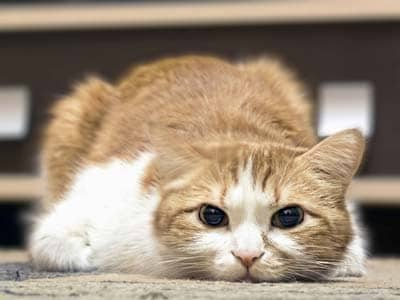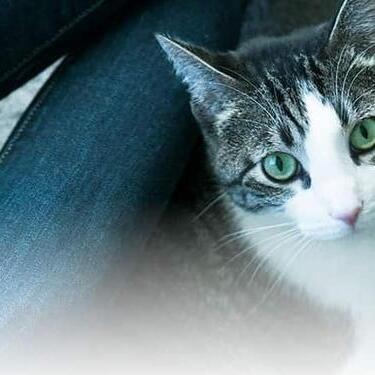
-
Find the right food for your pet
Take this quiz to see which food may be the best for your furry friend.
Find the right food for your pet
Take this quiz to see which food may be the best for your furry friend.
Featured products
 Small & Mini Savory Stew with Chicken & Vegetables Dog Food
Small & Mini Savory Stew with Chicken & Vegetables Dog FoodA delicious complement to the nutrition of Science Diet Small & Mini 7+ dog food
Shop Now Adult Healthy Cuisine Roasted Chicken, Carrots & Spinach Stew Dog Food
Adult Healthy Cuisine Roasted Chicken, Carrots & Spinach Stew Dog FoodDelicious roasted chicken paired with tender vegetables in a succulent stew
Shop Now Adult 7+ Perfect Digestion Chicken, Whole Oats & Brown Rice Recipe Dog Food
Adult 7+ Perfect Digestion Chicken, Whole Oats & Brown Rice Recipe Dog FoodScience Diet's breakthrough nutrition supports ultimate digestive well-being & healthy microbiome for dogs age 7+
Shop NowFeatured products
 Adult 7+ Senior Vitality Chicken & Vegetable Stew Cat Food
Adult 7+ Senior Vitality Chicken & Vegetable Stew Cat FoodImproves Everyday Ability to Get Up & Go
Shop Now Adult Savory Entrée Can Variety Pack Cat Food
Adult Savory Entrée Can Variety Pack Cat FoodPrecisely balanced nutrition with the delicious taste of savory minced chicken to help fuel the energy needs of cats during the prime of their life
Shop Now Adult 7+ Tender Tuna Dinner Cat Food
Adult 7+ Tender Tuna Dinner Cat FoodWith delicious chunks in a decadent gravy
Shop Now -
Dog
- Dog Tips & Articles
-
Health Category
- Weight
- Food & Environmental Sensitivities
- Urinary
- Digestive
- Joint
- Kidney
-
Life Stage
- Puppy Nutrition
- Adult Nutrition
- Senior Nutrition
Cat
- Cat Tips & Articles
-
Health Category
- Weight
- Skin & Food Sensitivities
- Urinary
- Digestive
- Kidney
-
Life Stage
- Kitten Nutrition
- Adult Nutrition
Featured articles
 Do Dogs and Cats have Belly Buttons?
Do Dogs and Cats have Belly Buttons?Learn whether cats & dogs have belly buttons like humans, what the function is, and if there are any health concerns associated with it.
Read More Why Are Dogs and Cats So Cute?
Why Are Dogs and Cats So Cute?If waggy puppy dog tails and furry kitten yawns make you swoon, you're not alone. Why are cats so cute? And, dogs too! Let's find out!
Read More Does My Pet Hate Me?
Does My Pet Hate Me?Learn tips for bonding with your pet if you've ever thought, 'My dog doesn't like me, or 'Why do I have a standoffish cat?'
Read More -


It can be easy to miss the signs your cat is sick; they don't all resemble the colds that people contract from time to time. Cats have a tendency to hide their pain, making it difficult to properly care for them when they need it the most. But if you know what to look for, you can recognize cat pain symptoms early and get your kitty the help they need.
Why Cats Hide Their Pain
The tendency cats have to disguise their discomfort is believed to be an evolutionary holdover from their days in the wild, where illness or injury paints a target on their back to nearby predators. Not only would the appearance of weakness make a wild cat more vulnerable, but it would also put them in danger of being bullied or abandoned by their group.
Although today's domestic cats generally don't have to worry about becoming prey, they may view other pets in the house–or even other people–as competition for resources like food and water. Whether driven by a deeply ingrained instinct or by overprotective kitty logic, cats worry that showing signs of pain will cause them to lose out to a more deserving animal, encouraging them to mask their symptoms.
Common Cat Pain Symptoms

A cat experiencing pain will often display behavioral changes that can serve to tip off an astute pet parent to the fact that something's wrong. According to Vetstreet, common signs your cat is sick or in pain include:
- Hiding
- Sitting still and hunched up
- Loss of interest in people, other pets, or activities
- Neglecting to groom themselves, or over-grooming in one spot
- Purring, excessive meowing, or unusual vocalizations
- Restlessness or aggression toward friendly surroundings
- Doing their business outside the litter box
Kitties in pain might also show a loss of appetite, unusual vomiting, clingy behavior, or other noticeable changes in personality and demeanor. A cat experiencing chronic pain, such as arthritis, might stop using the litter box altogether because it's too difficult to climb into. For this reason, they may also stop climbing or jumping onto the high perches of their cat tree.


Tasty Tips
How Your Vet Can Help

Any abnormal behavior from your cat should prompt a visit to their veterinarian, who can help determine whether these changes are due to pain or illness and then work with you to treat the underlying cause. The vet can also help with pain management–this might include prescription pain medication, heat therapy, physical rehabilitation, or even massage.
If your kitty is overweight, your vet might also place them on a weight-management food, especially if they're experiencing chronic joint pain. Certain joint supplements can help maintain their mobility too, but you may ultimately want to explore a therapeutic food to help manage an underlying condition.
One thing you should never do for your kitty is to administer over-the-counter pain medications, which could be very toxic to feline digestive systems. You should also check with your vet regarding any supplements you plan to give them to make sure they're safe. The vet might also prescribe mood-stabilizing drugs to help your sick cat cope with both the pain and accompanying changes in their lifestyle.
How You Can Help
Back at home, consider relocating their bed, food dishes, water bowls, and litter box so they're easier for them to get to. Make sure the litter box is simple enough to climb in and out of as well. If you have a model with a lid or deep sides, for instance, you might need to replace it with an open, shallower structure, and keep it scooped clean more frequently to be more accommodating. Also, preventing other pets or children from trying to play or roughhouse with them is a good idea,
Of course, the best medicine is preventive. Annual vet checkups and a well-balanced food will go a long way toward preventing your cat from developing a painful condition.
As a pet parent, you no doubt want your kitty to be healthy for their entire life. Learning to recognize when they're in pain will go a long way to improving your furry companion's quality of life.


Jean Marie Bauhaus is a pet parent, pet blogger, and novelist from Tulsa, Oklahoma, where she usually writes under the supervision of a lapful of fur babies.
Related products

Improves Everyday Ability to Get Up & Go

Precisely balanced nutrition with the delicious taste of savory minced chicken to help fuel the energy needs of cats during the prime of their life

Supports energy level and beautiful fur in mature cats

With delicious chunks in a decadent gravy
Related articles

Brushing your cat's teeth is just as important as brushing your own. Learn signs or oral health problems in your cat and how to avoid them.

Discover the benefits of Hill's line of kitten foods and how they provide complete and balance nutrition for growing kittens.

Discover which cat toys games your feline friend might like, and how they are great sources of exercise. Explore our library of articles to learn more.

Discover how to identify cat sensitive skin and what you can do to help your cat thrive from head to paw.

Put your cat on a diet without them knowing
Our low calorie formula helps you control your cat's weight. It's packed with high-quality protein for building lean muscles, and made with purposeful ingredients for a flavorful, nutritious meal. Clinically proven antioxidants, Vitamin C+E, help promote a healthy immune system.
Put your cat on a diet without them knowing
Our low calorie formula helps you control your cat's weight. It's packed with high-quality protein for building lean muscles, and made with purposeful ingredients for a flavorful, nutritious meal. Clinically proven antioxidants, Vitamin C+E, help promote a healthy immune system.

